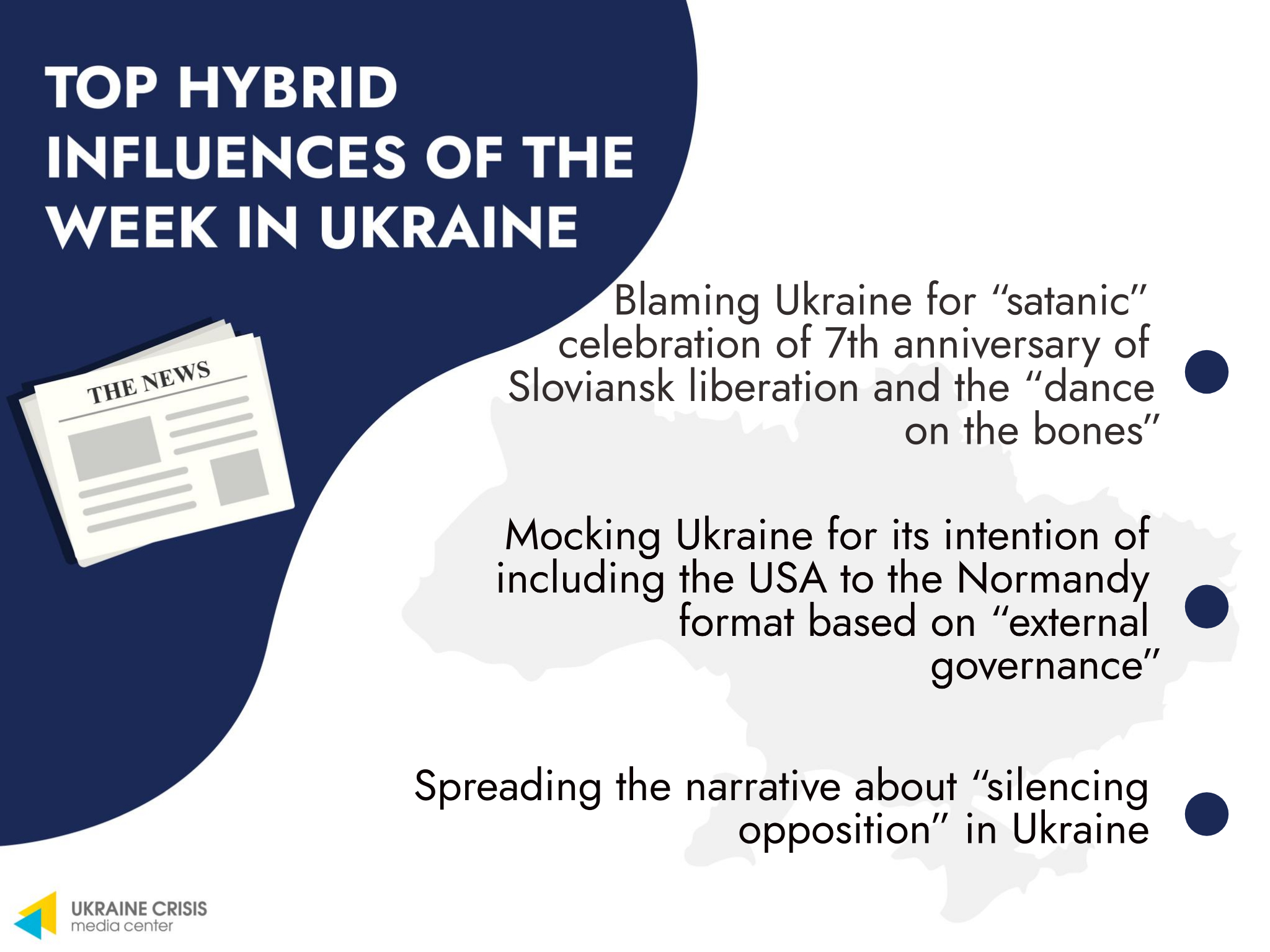- July 5 marked the 7th anniversary of Sloviansk liberation from Russian occupation, which has been commemorated on the national level since 2016. This year’s commemoration event in Sloviansk featured an installation with the remnants of soldiers by the “Black Tulip”’ humanitarian mission, which carries out search and exhumation of those deceased in the war zone. The pro-Kremlin forces disseminated disinformation on the event, portraying it as “satanic” and “dancing on the bones”, completely distorting the intended aim of the installation – to demonstrate how modern war looks and show that it is very close. Such information attacks aim at dehumanization, one of the key tactics of Russian propaganda.
- President Zelensky has recently voiced a suggestion to include the US into the Normandy format of talks, and the pro-Kremlin forces have met this with attacks, once again weaponizing the narrative of “external governance”. Washington is portrayed as the true authority making all the important decisions for Ukraine, hence the need to include it in negotiations. The narrative’s goal is to sow discord between Ukraine and the US, whose support for Ukraine’s territorial integrity has strengthened with Biden’s election.
- With the new proceedings in the case of Viktor Medvedchuk, the Kremlin’s ally suspected of high treason, pro-Russian forces have intensified spreading the “persecution of the opposition” narrative. They reiterate Medvedchuk’s claims that the case was fabricated to “silence the opposition”, which aims to portray him as a victim of an “authoritarian government”. Earlier, the Security Service of Ukraine found evidence of the pro-Kremlin politician’s subversion attempts against Ukraine – among other things, developing an anti-Ukrainian Promin project disguised as an organization supporting Ukrainians working and studying in Russia.



